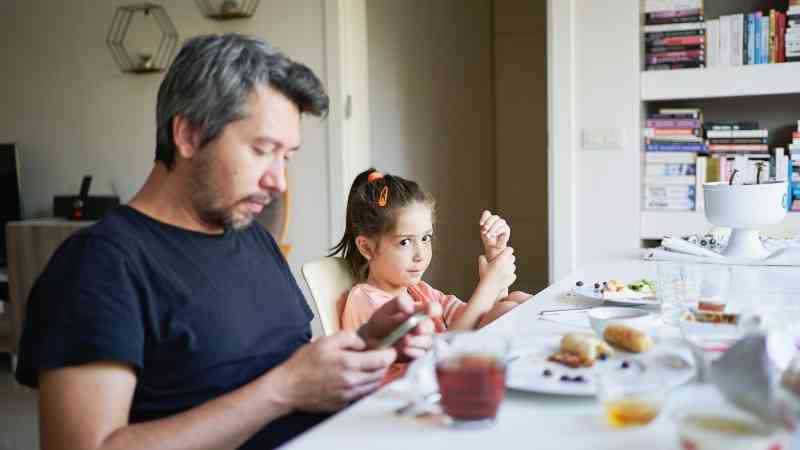Adults need to stop using their phones at the dinner table and confront their own device addiction before proposing bans for young people, the children’s commissioner for England has said.
Dame Rachel de Souza addressed the Commons education select committee after calls for tighter restrictions on smartphones for children.
During a hearing on the effects of screentime on wellbeing, she said: “I’m not being judgmental. I’m a mother. I know how hard this is.” But she added that adults needed to address their own behaviour. De Souza said that on her way to parliament she had seen “many people watching their phones and walking into the road”.
She said: “You see parents with kids using their phones at dinner time. We can’t say, ‘I’m gonna ban you from having this’ but then act as adults in an uncontrolled way, scrolling at night. We really do need our parents and the adults in this country to have this conversation about our own addictions.”
Schools in England have been given government guidance intended to stop the use of mobile phones.
MPs discussed the campaign started by Esther Ghey, the mother of Brianna Ghey, a 16-year-old transgender girl who was killed by two teenagers.
Ghey suggested that under-16s should be blocked from accessing social media on phones and proposed stronger parental controls at the point of sale. Her proposals received backing from police.
Ian Critchley, lead on child protection for the National Police Chiefs’ Council, told the committee: “I absolutely support any requirements that put a further onus on points of sale and their requirements to make sure all safety requirements are in place. There should be no content that causes harm to children accessible to them on their phones. That ultimately comes back to the companies.”
Another witness warned, however, that this was not a “silver bullet” because of the second-hand market. David Wright, director of the UK Safer Internet Centre, said: “I just fear for hand-me-downs, laptops, tablets … the procurement processes for those.”
Asked whether she would support age verification when a phone was sold, De Souza said: “I think as long as that’s coupled with a proper campaign of parental education I think it could be incredibly helpful and we should be looking at every innovation possible.”
De Souza has commissioned a nationwide survey of a million children, which has found that they feel less safe online now than in 2021.
De Souza said she was not satisfied with the responses from social media companies about their efforts to combat toxic content online.
Social media companies will have new obligations to protect children under the Online Safety Act, which is being implemented by Ofcom.
However, MPs are expected to warn that the public may end up disappointed by the act because of delays and its complaints system.
The act will not be fully implemented by 2026 and “there is a risk that public confidence in the regime will be undermined if it does not quickly bring about tangible changes to people’s online experience”, the House of Commons public accounts committee said in a report.
Ofcom will be unable to act on individual complaints and can only step in when there are “systemic concerns” about a provider, nor does it have a mechanism for telling complainants whether their concerns have contributed to any action, the report said.
